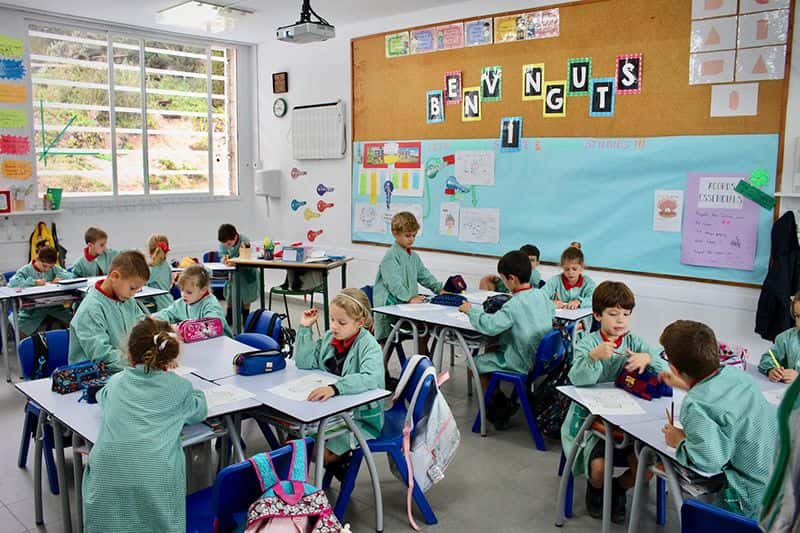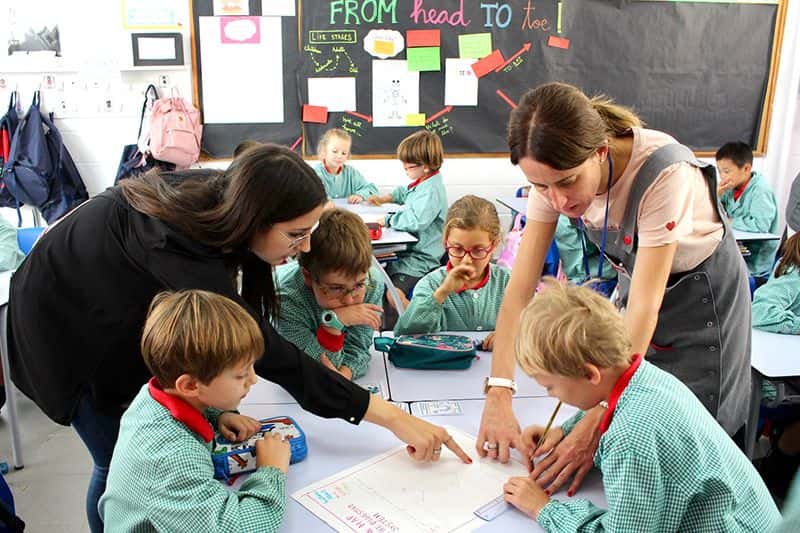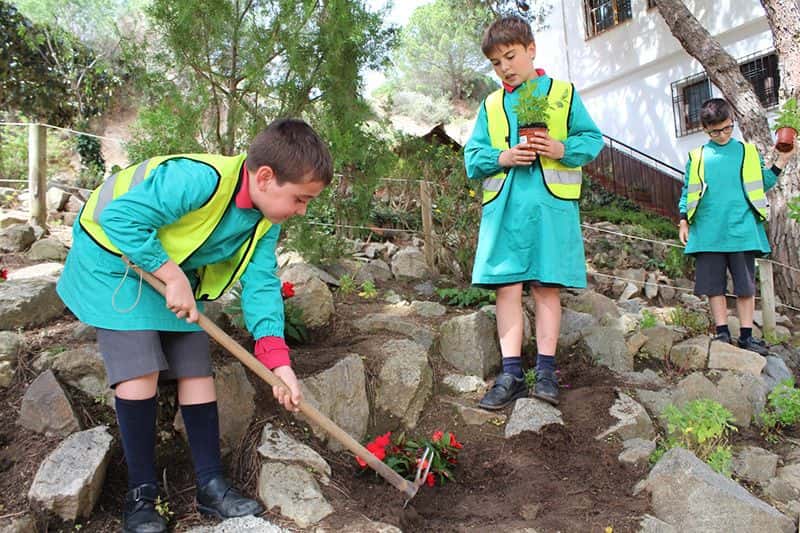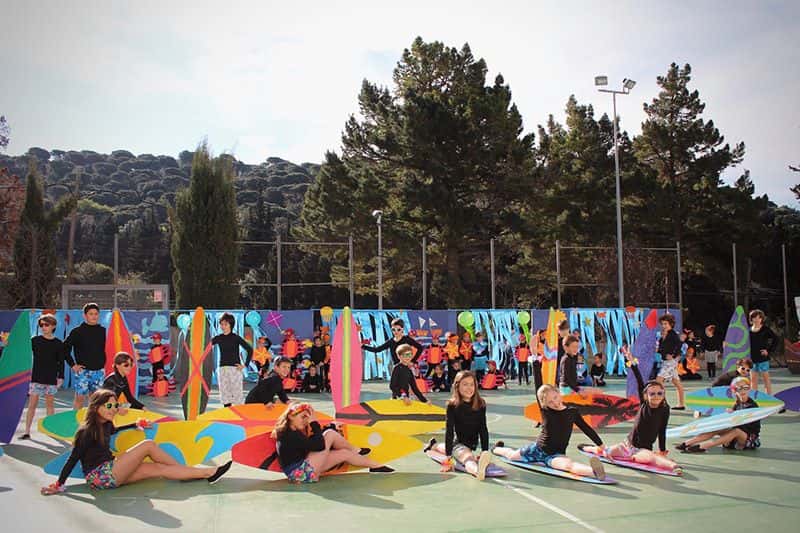The longest and and most fast-moving stage of school

Primary is the longest stage of school that lasts for six years, during which time children undergo a significant evolution: from child to student. This development is relatively clear in our school, as all the primary education classrooms are on the same floor of the building -also home to the gym, the assembly hall, and the library- with a glass curtain wall to provide continuity and encourage visual interaction. Furthermore, the different primary school years are normally involved in cooperative projects in which the entire year takes part, leisure activities, an art festival, and celebrations such as Harvest Festival, Christmas concerts, Science Week and Culture Week.
To some extent, the primary school stage is a continuation of the methods introduced at Kindergarten, such as “EMAT” or “Ludi Primària”, although the study of robotics and programming also begins through Lego Education. This is a subject thatposes fun challenges and creative proposals for students, offering them the chance to channel their skills. They do this by creating robots, programming them, and designing video games with scratch, a programming language devised by the Massachusetts Institute of Technology (MIT), which is based on predefined blocks of code and is used to create their own structures and algorithms.

Digital skills in English

We have introduced new technologies into the school seamlessly, just like in everyday life. As a result of lockdown, in the 2020-21 year both the school and the families made a firm commitment to the incorporation of iPads into the classroom. Although this was initially to ensure class continuity if students are unable to attend in person, digital tablets and pens have provided exponential learning in terms of students’ digital skills. They have also helped in the way students know how to manage their time and tasks, as they have a good command of the digital environment Drive, Classroom, and a range of apps, all agreed to by the teaching staff.
As well as the classes in English for the curriculum, certain subjects and activities, such as Chess, Robotics and Physical Education, also take place in this language during primary school years. At the end of the primary school stage, the 6th year group goes on an end-of-school trip that involves full language immersion in Wales.
We encourage the full development of the child

Neuroscience confirms that physical activity isdirectly related tothe memory, learning, attention, executive functions, reaction time, language, speed of information processing, motor skills, verbal, visual and spatial abilities and, ultimately, academic results. In view of all this and more, primary school students do three hours a week of physical education and healthy habits in the clean, fresh air, thanks to the school’s location in a green lung.
Apart from the gym and the fact that physical activity often takes place in the woods surrounding the school, the school sports track fosters work on laterality and all motor skills in general (jumping, twisting, moving, etc.) in different situations, routes and distances. Specific motor skills are also fine-tuned (bouncing, movement, throwing precision, catching the ball, etc.), as well as coordination with alternative material, such as rackets, hockey sticks, badminton rackets, etc.
Every year, the school obtains goodresults in the basic skills tests conducted by the Generalitat de Catalunya during the 6th year of primary school. These tests are conducted to provide information, training and guidance for students, families and the schools themselves. The school enhances and fosters its relationshipwith the families through a series of traditional parties, regular meetings with tutors, and the possibility of monitoring activities on theClassroom app and the blog, and the school’s Facebook and Instagram account.